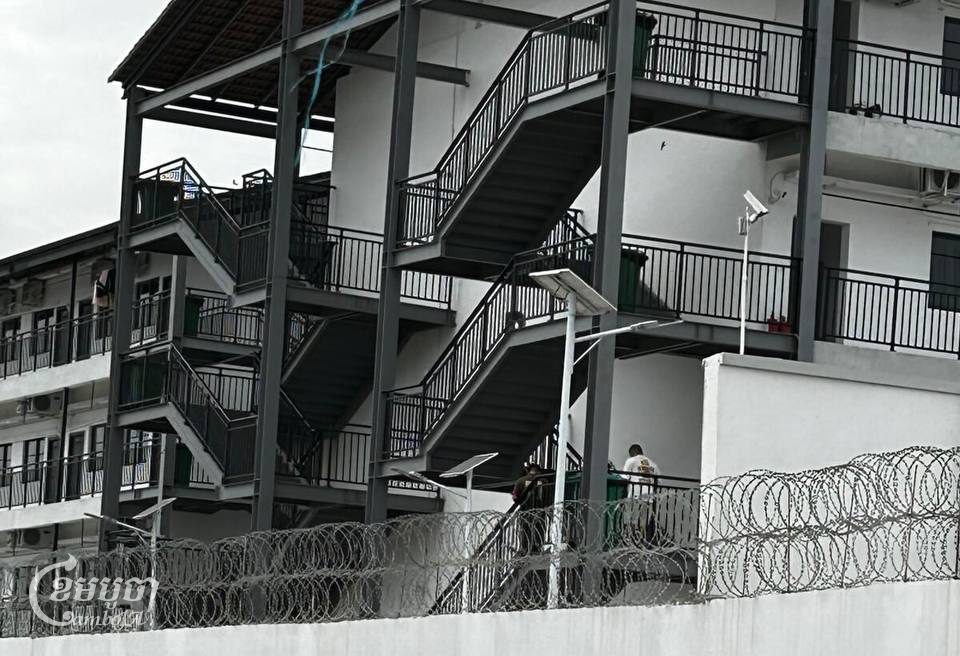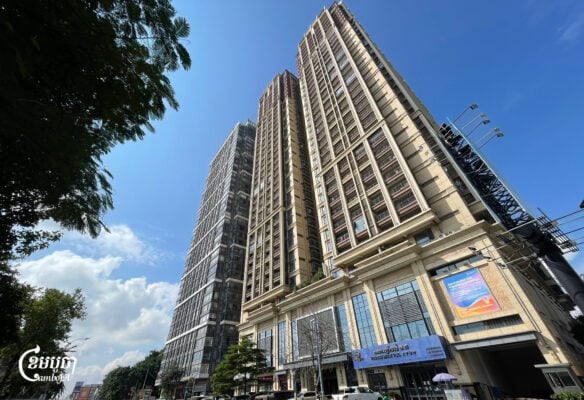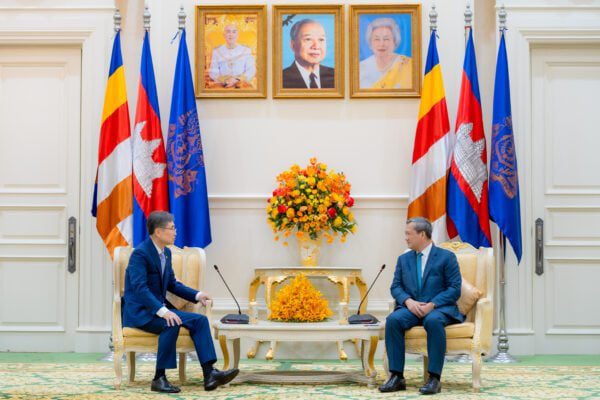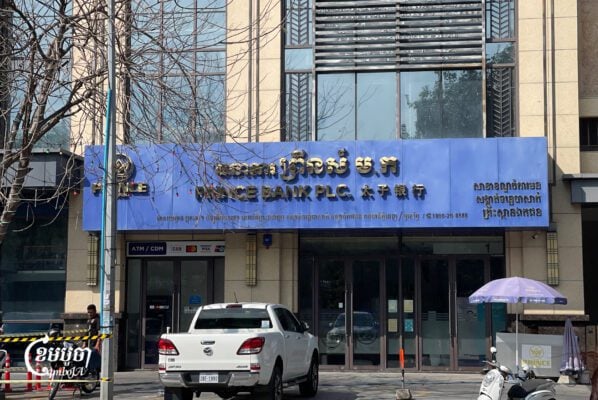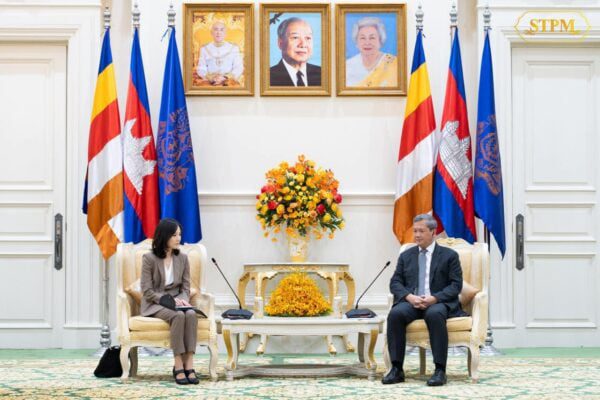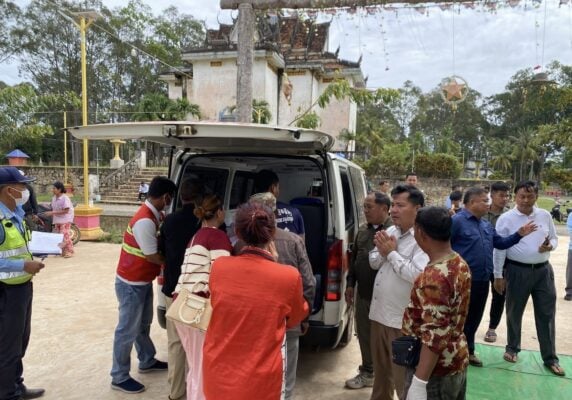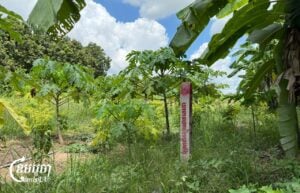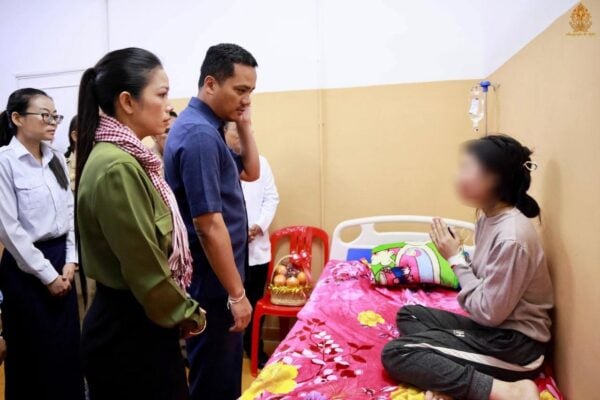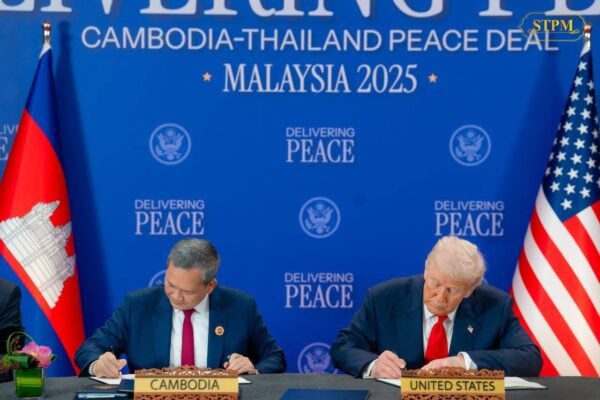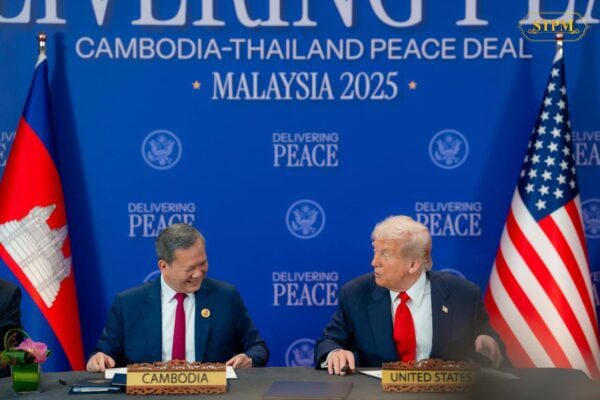Raids on suspected online scam rings rolled out across Cambodia on Thursday night, but major known compounds were left untouched – even as hundreds were seen fleeing one of them and boarding buses, underscoring reports that operations had continued despite a supposed crackdown last year.
In Oddar Meanchey province, police said they arrested 103 foreign nationals linked to online scams and other crimes across nine locations. But the O’Smach Resort – located in the province and owned by the U.S.-sanctioned L.Y.P. Group – was not among them, despite long-standing ties to human trafficking and scam networks.
Meanwhile, in Kampong Speu province, social media footage geolocated by CamboJA News showed hundreds fleeing a site known locally as “Mango Park,” carrying luggage and boarding buses. Voices in the background can be heard shouting, “Police are coming!”
Kampong Speu provincial police and the governor did not confirm whether the site was raided. Yang Sokly, police chief of Kong Pisei district, where the compound is located, said he had yet to receive orders from higher-ups about any raid.
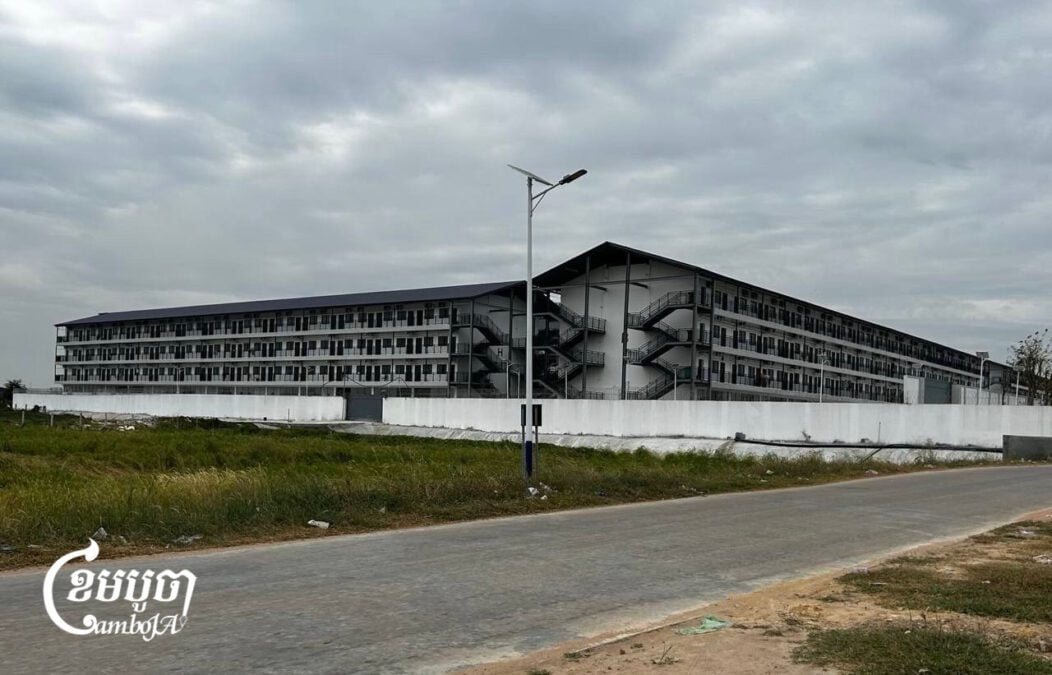
On Friday afternoon, pro-government outlet Fresh News reported that nearly 500 foreigners “suspected of online scams” were stopped Thursday night in dozens of vehicles carrying computer gear in Takhmao city, Kandal province, near Mango Park. They are reportedly being “temporarily” allowed to stay on the premises of Kandal Steung District Hall under “heavy guard.”
Several nationalities are reportedly among the group, including Chinese, Vietnamese, Indonesian, Filipino, Bangladeshi, Pakistani, Indian and Myanmar citizens.
Mango Park was investigated by CamboJA News in December after national police raided the site following an exposé by a Korean media outlet linking it to cybercrime and human trafficking. CamboJA found the compound appeared to remain operational despite the raid, with more than 1,000 potential trafficking victims still unaccounted for at the time.
Another large suspected scam compound, located just nine kilometers away and known as “Mango Park 2,” was also identified by CamboJA and cited in a recent Amnesty International report. Despite multiple indicators of criminal activity, it was not among the sites raided on Thursday.

Oddar Meanchey deputy police chief Long Sokun said most of the 103 foreigners arrested in the province were Chinese, along with fewer than 30 Vietnamese, Laotian and Thai nationals. He did not say whether they were screened for trafficking.
When asked about a raid on O’Smach Resort, Sokun said police had not targeted the site and focused on locations outside it. Asked if authorities planned to investigate O’Smach in the future, he said that would depend on information gathered from the detainees.
In January, dozens of foreign workers revolted at O’Smach Resort, a licensed casino, after reportedly being sent there following months of unpaid work for a company in Preah Sihanouk province, according to a police report.
Armed with makeshift rods made from bed frames, the group forced their way out of the compound before being sent for deportation procedures. Police did not confirm what kind of work they had been doing.
The resort has direct ties to U.S.-sanctioned tycoon and senator Ly Yong Phat. The L.Y.P. Group, which bears his name, was last chaired by his wife and one of his children before the entity – along with other family-linked businesses – vanished from public records last year in what appeared to be a bid to dodge sanctions.
Ly was sanctioned in September 2024 over alleged involvement in human trafficking and cybercrimes.
O’Smach Resort was also raided in 2022. At the time, a police official said it may have housed thousands of foreign workers.
Since a government directive signed by Prime Minister Hun Manet on July 14 ordering a nationwide scam crackdown, raids have mostly appeared to have targeted small to mid-tier operations.
The move came amid international pressure and a border row with Thailand, which issued an arrest warrant and seized assets tied to Cambodian senator Kok An over his alleged links to scam hubs in Poipet.
As of Friday, government-friendly media reported 1,362 foreign nationals arrested in the crackdown.
Outside Oddar Meanchey and Kandal, police conducted an operation in Kratie province’s Snoul district Thursday night, detaining 312 foreign nationals, including Indonesians and Bangladeshis, linked to an alleged scam ring.
The outlet also said nine Chinese nationals suspected of online scam activities were arrested while traveling through Preah Vihear province. Officials seized devices believed to be used to scam.
Screening of detainees for human trafficking appears to have been limited, despite the scam industry’s reliance on forced or coerced labor. Rights groups estimate some 150,000 people from at least 22 countries have been exploited in Cambodia’s scam compounds, with total numbers reaching at least 350,000 across regional networks in Laos and Myanmar.

Chou Bun Eng, permanent vice chair of the National Committee to Counter Trafficking, told CamboJA News on Thursday that investigating every offense would strain detention facilities and could expose Cambodia to more human rights criticism. She called for “shared responsibility,” urging countries of origin to take back their nationals for further questioning while Cambodia focuses on prosecuting offenders in court.
Law enforcement action has so far been seemingly limited at Cambodia’s most notorious cybercrime and casino enclaves, including Bavet, a border town in Svay Rieng province. Alleged well-connected elites have also not been targeted, a gap noted by transnational crime analysts.
Even before this week’s raids, analysts estimated around 350 industrial-scale scam centers were active across Cambodia, generating between $12 billion and $19 billion a year.
National Police spokesperson Chhay Kim Khoeun and Interior Ministry spokesperson Touch Sokhak did not immediately respond to requests for comment.
None of the embassies representing nationals detained in the raids – including the South Korean embassy – immediately responded to requests for comment.

